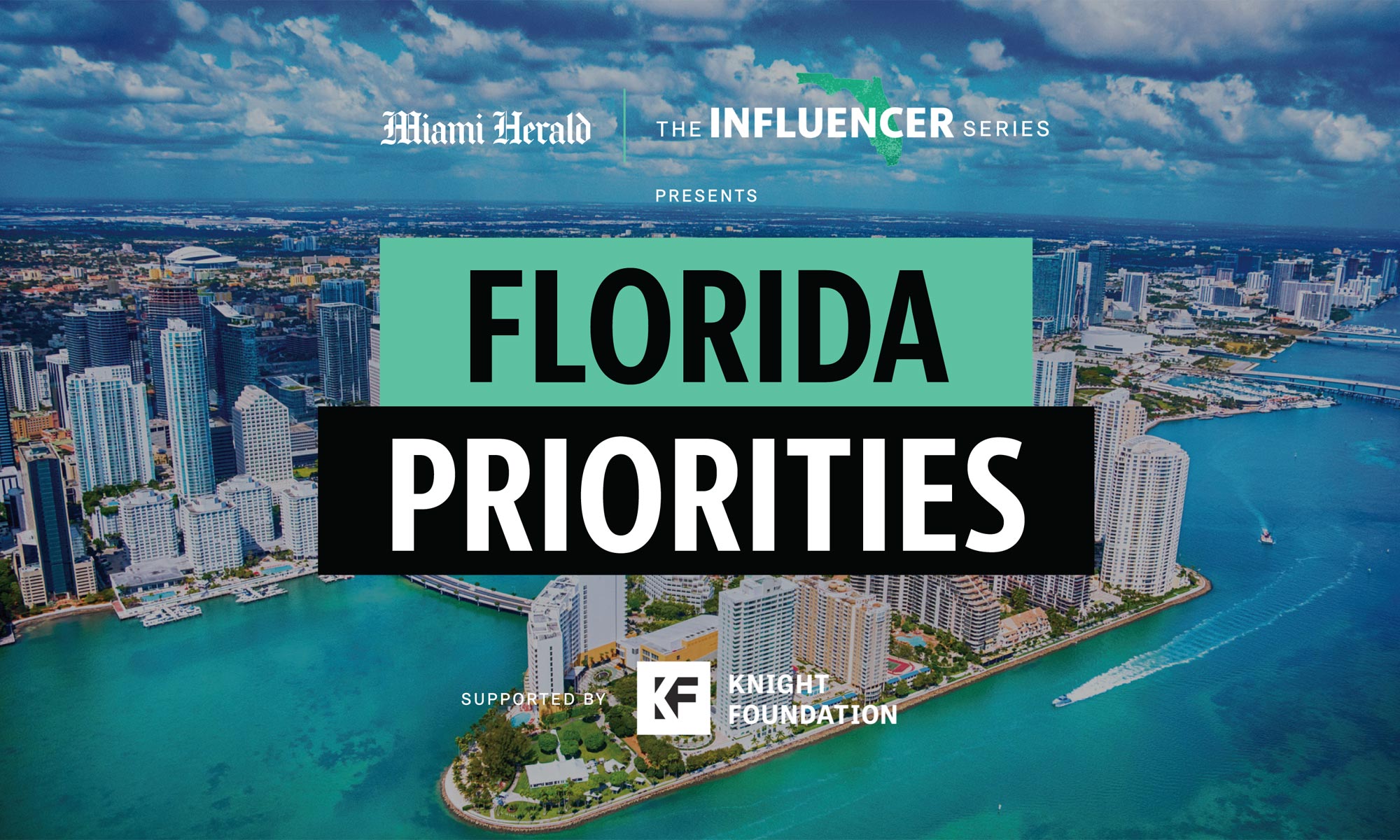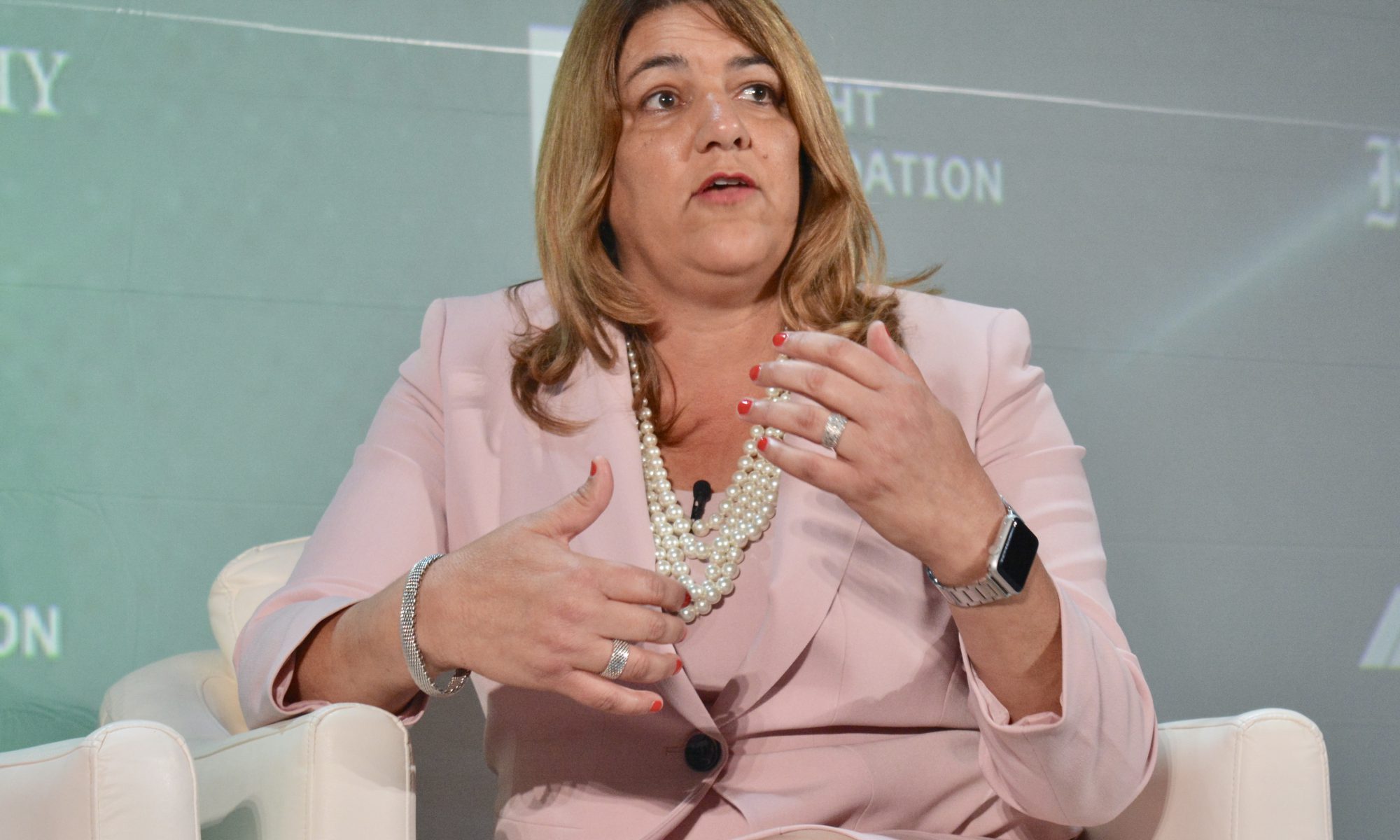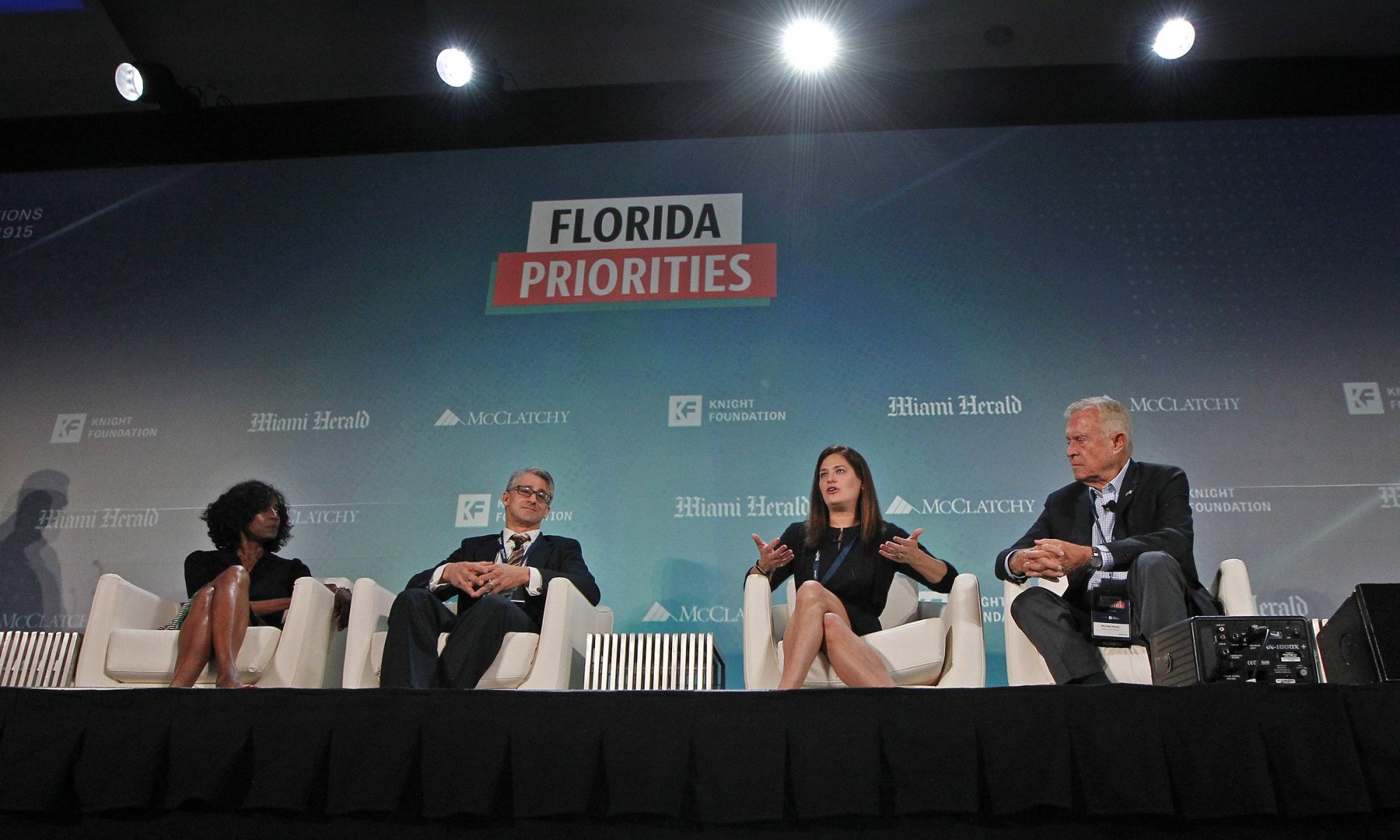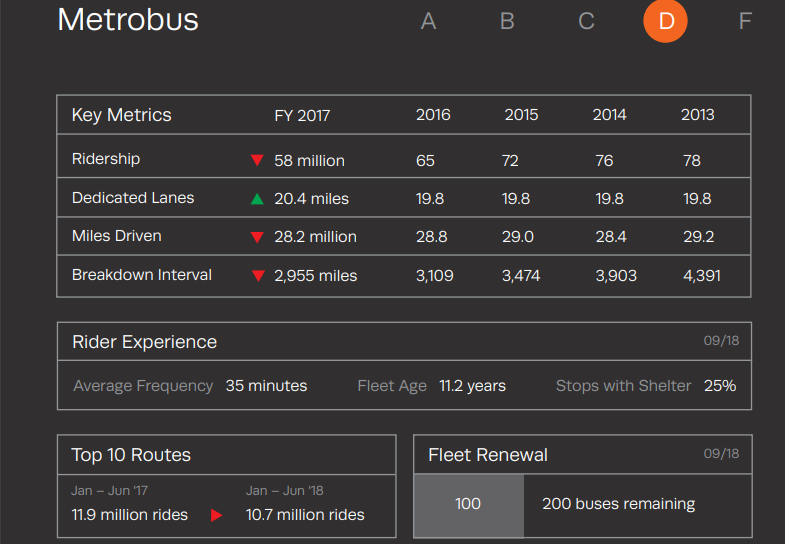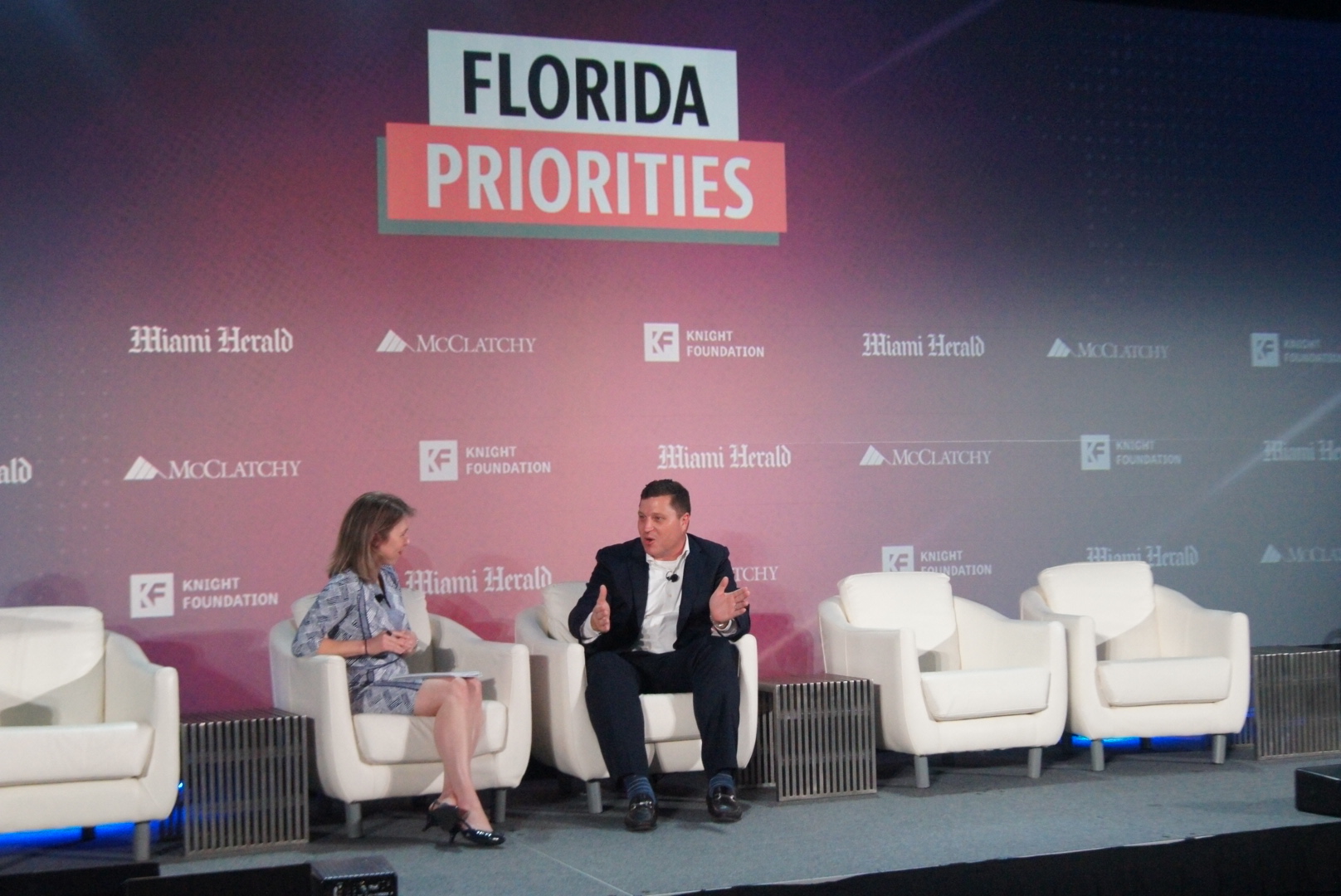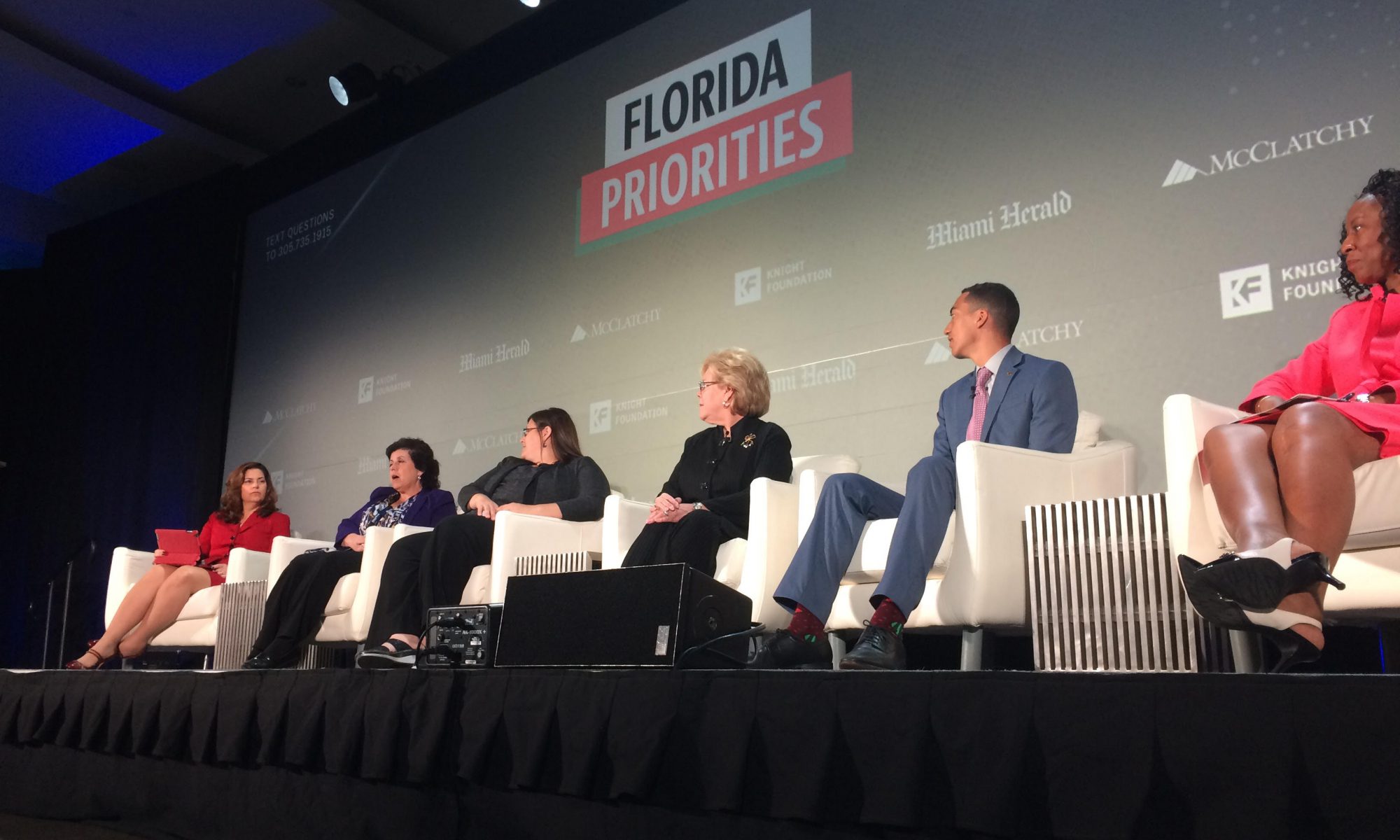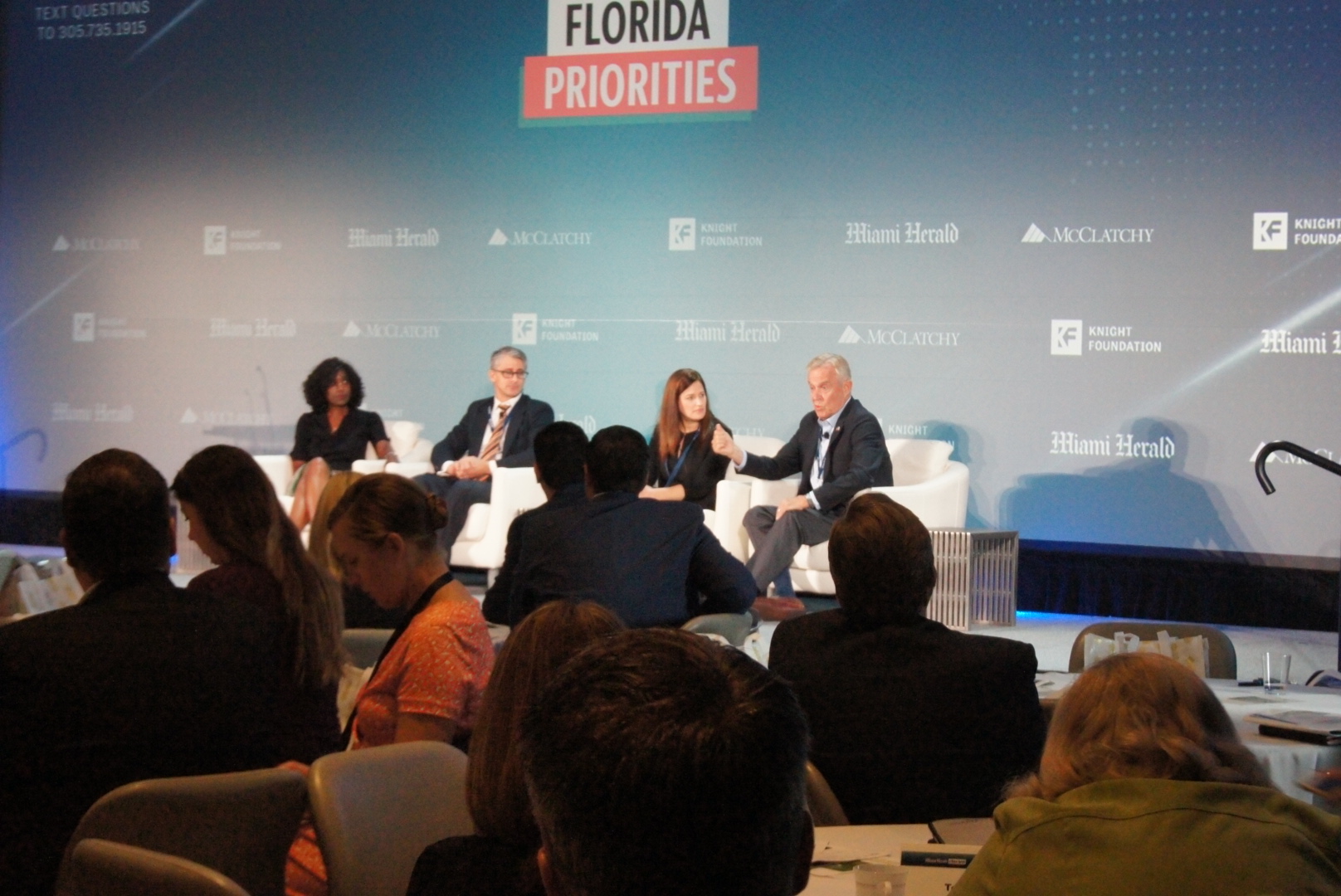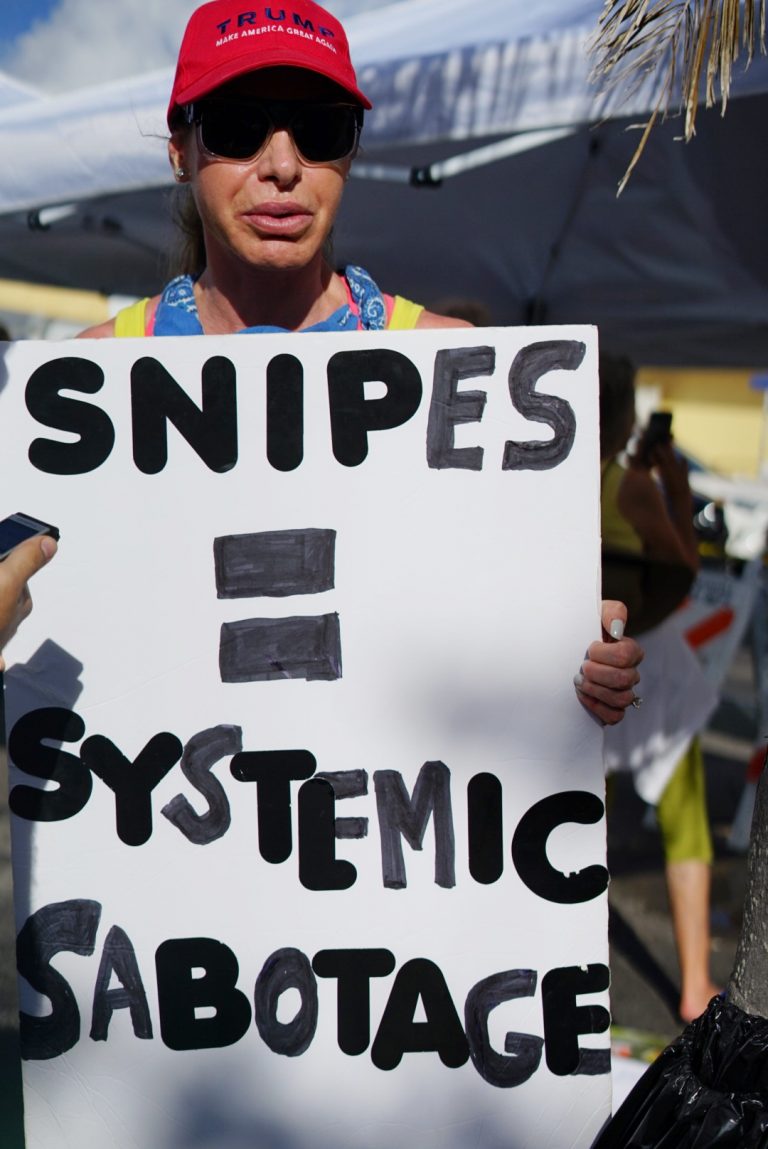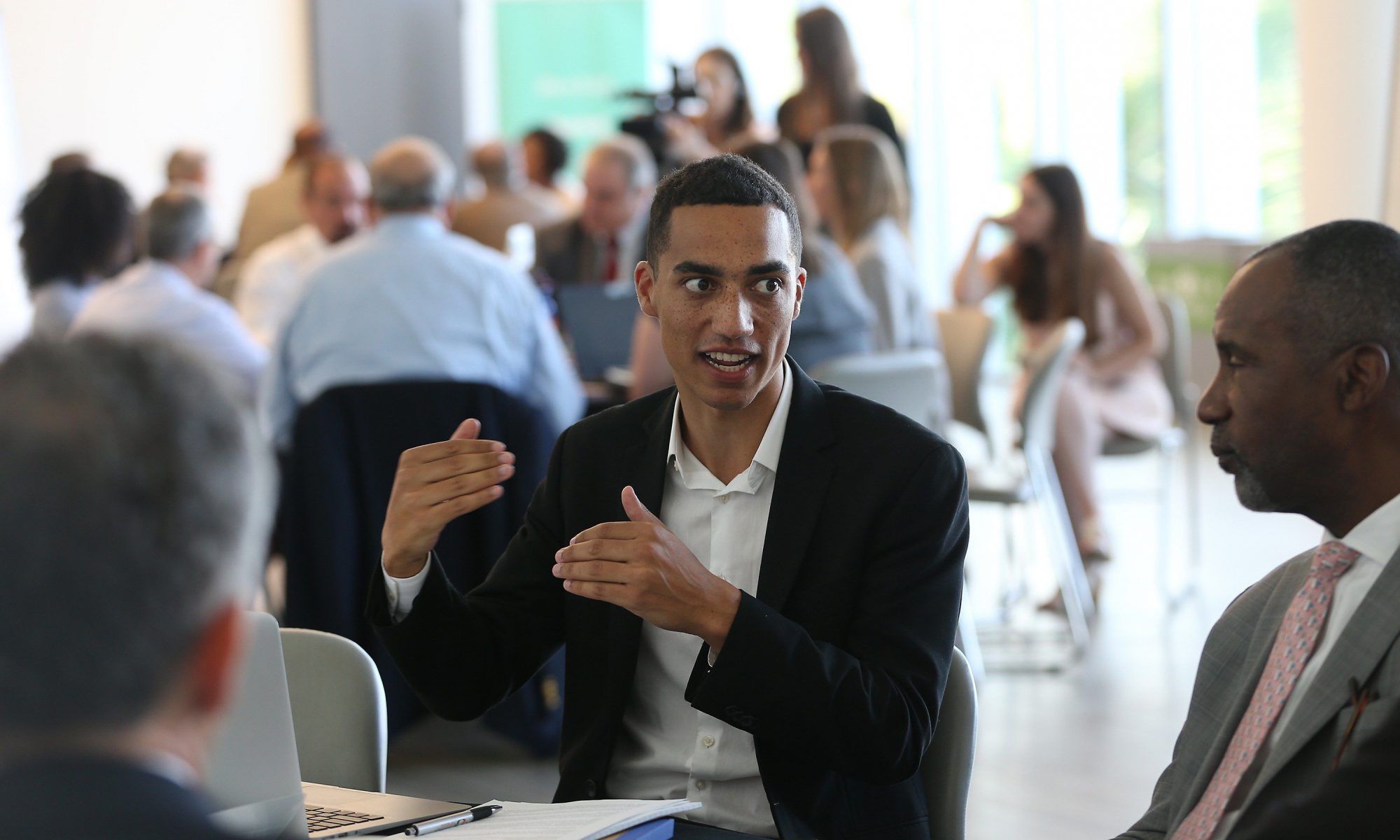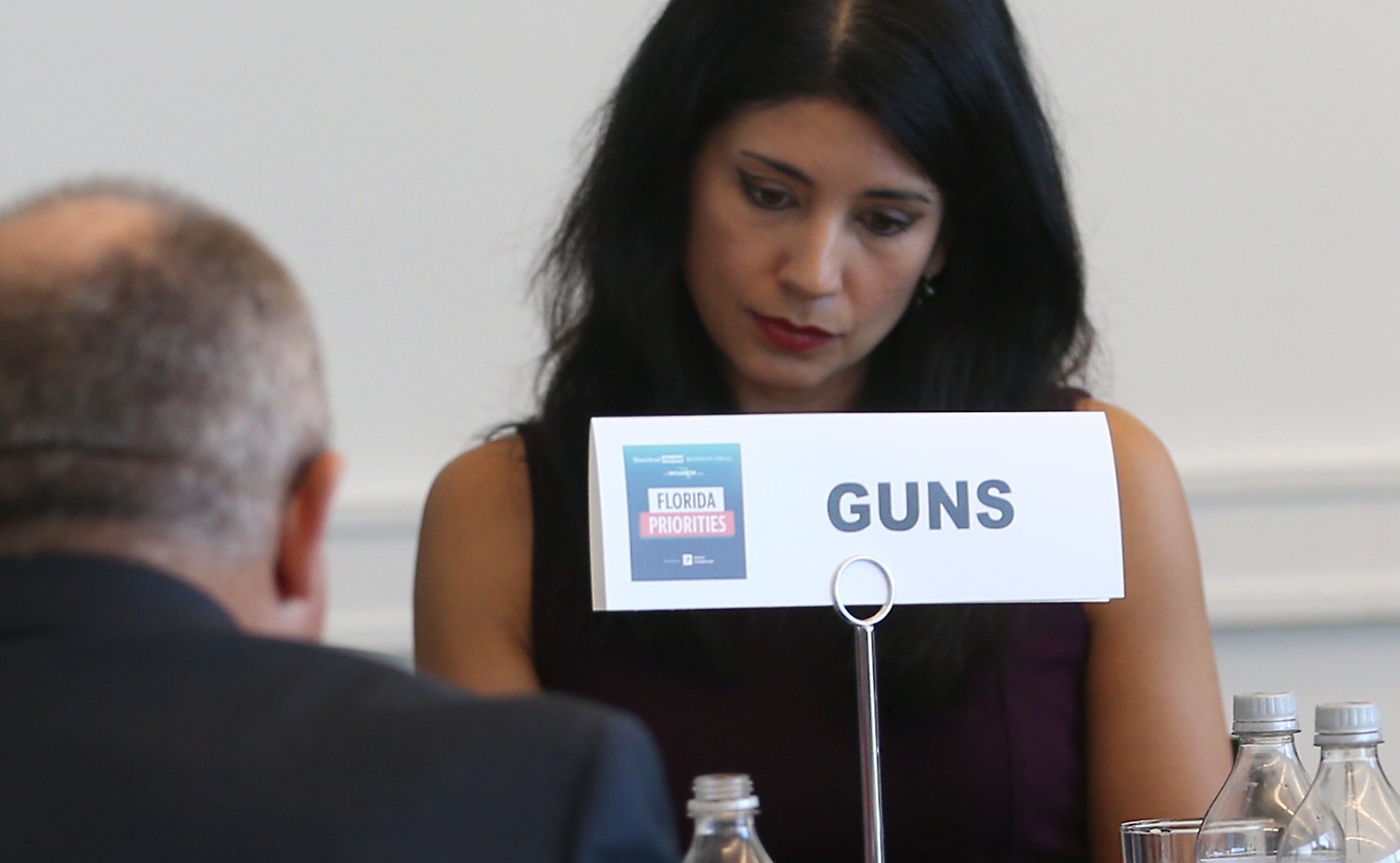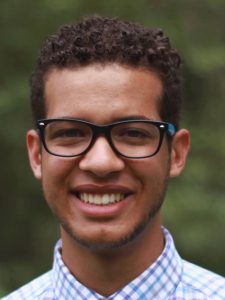By Rebecca Goddard
University of Miami Hurricane
Controversy– often of an explosive sort– characterizes most political debate in modern America, from healthcare to gun control. But as Florida struggles to navigate its divided political landscape, participants at the Florida Priorities Summit offered this advice: start prioritizing people over politics.
Leaders from around the state in infrastructure, education, health care, gun legislation and environmental policy gathered Tuesday and Wednesday at the University of Miami to discuss Florida’s future. The conference was part of a project by the Miami Herald, el Nuevo Herald and Bradenton Herald.
 Cindy Arenberg Seltzer, president and CEO of the Children’s Services Council of Broward County, asked the questions on the minds of many: “What is it that we want our state to look like? What is it that we want our image to project?”
Cindy Arenberg Seltzer, president and CEO of the Children’s Services Council of Broward County, asked the questions on the minds of many: “What is it that we want our state to look like? What is it that we want our image to project?”
For Victoria Kasdan, a registered nurse and executive director of We Care Manatee, the answer was simple. She said creating an affordable and accessible healthcare system would be a major step towards brightening Florida’s future.
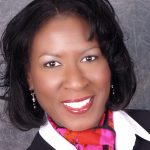 “We’re all consumers of healthcare, so there’s no reason that we all shouldn’t be concerned about high costs and about affordability,” Kasdan said. “It impacts us all.”
“We’re all consumers of healthcare, so there’s no reason that we all shouldn’t be concerned about high costs and about affordability,” Kasdan said. “It impacts us all.”
Kasdan asked legislators to expand Medicaid, calling this solution “low-hanging fruit,” and pointing out that Florida is one of only 14 states that have not already expanded the program.
She also reminded politicians what’s at stake.
“Dear legislators, these are not inanimate objects, the uninsured, these are people,” Kasdan said.
Seltzer had a different request for lawmakers. She urged them to start considering students an investment rather than an expense.
“In order for the state to succeed economically, to be competitive in the global economy, we have to have a world class education,” Seltzer said.
And what does Seltzer think will improve education? Money.
In fact, she said funding is the single most important force in the battle to better Florida’s education system. Taxpayers are willing to spend more on education, but it’s up to lawmakers to make sure the money is allocated properly, Seltzer said.
Rhea Law, chair of the Buchanan Ingersoll & Rooney Florida law offices, said she just wants politicians and the public to start focusing on their common goals rather than their differences.
“We really can all coalesce around the fact that we want a safe environment, an inclusive environment for our state,” Law said. “If we can agree to that, coming to the specific solutions that drive us to that result is what’s going to drive our ultimate ability to reach a consensus.”
Kasdan offered another way for constituents to inspire legislators to create change.
“We need to appeal to them as people, not as party members and really to go after the humanity of the issues,” she said. “Until our politicians incorporate and encapsulate the humanity of some of the requests we’re making, I don’t think we’ll make progress.”
Kasdan said cooperation in recognizing the humanity of each individual is the best way to lift the “dark cloud” that’s over Florida, the only way that the Sunshine State will be able to fully live up to its nickname.
